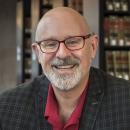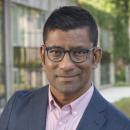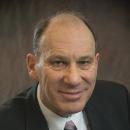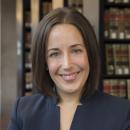The Evolution of Experiential Learning

There are some things a lawyer just has to learn by doing—like drafting an airtight contract or spotting issues in the other side’s document. That’s why the Law School hired telecommunications attorney Joan Neal in 2010, and it’s why she’s stuck to her feedback-heavy approach rather than allowing the size of her Contract Drafting and Review class to swell in response to demand.
“You could have students read about drafting contracts or listen to me talk about drafting contracts all year long, and they’re not necessarily going to be better at doing it,” said Neal, who spent two decades doing transactional and regulatory work for clients in the telecommunications industry. “You really do have to roll up your sleeves and do it; you have to make mistakes, find out what those mistakes are, correct those mistakes—and then try it again and do better.”
At first, Neal, who was originally hired as a part-time lecturer, taught the class one quarter per year, along with a doctrinal class on telecommunications law and a contract negotiations class that she taught with David Zarfes, now a clinical professor and the director of the Kirkland & Ellis Corporate Lab. Then she began teaching the contract drafting class twice a year, although even then students often ended up on a waitlist.
This year, however, Neal will join the faculty as a full-time Professor from Practice—the Law School’s second after corporate lawyer Scott Davis, who became the inaugural Professor from Practice last year—and she’ll teach the class all three quarters. She will also teach Advanced Contract Skills, a new experiential class that she’s designing from scratch.
This expansion reflects a natural evolution in the Law School’s commitment to helping students connect real-world lawyering to the theories they learn in doctrinal classes—and is one in a series of changes that will broaden students’ options for meeting the American Bar Association’s new experiential learning requirement, which goes into effect this year with the Class of 2019. The new ABA standards require six credit hours of experiential coursework—eight under the Law School’s quarter system—that may be fulfilled through qualifying clinic work, field placement, simulation courses, or practica. The mandate, an increase from the single credit previously required, reflects a growing movement in the legal industry to ensure that new lawyers enter the workplace needing substantially less on-the-job training.
At the Law School, where robust clinical offerings have been a vibrant part of the curriculum for decades, the new mandate required only a few changes, many of them building on work that was already underway. In addition to new “skills” classes, including ones taught by the two new Professors from Practice, the Law School’s clinical program has continued to grow in recent years; additions include the Jenner & Block Supreme Court and Appellate Clinic in 2016 and the Innovation Clinic in 2015. The Law School has also added four practica that offer students hands-on opportunities to work with the Hopi Appellate Court in Arizona, engage in comparative analysis of foreign constitutions, participate in civil rights litigation and advocacy, and examine policy and legal issues at the World Bank.
“All of these were part of an institutional desire to expand our experiential offerings,” said Deputy Dean Daniel Abebe, the Harold J. and Marion F. Green Professor of Law and Walter Mander Teaching Scholar. “We’re lucky at Chicago to have been ahead of the curve.”
Still, when the mandate was first announced, then–Deputy Dean Tom Ginsburg and Jeff Leslie, the Director of Clinical and Experiential Learning and Faculty Director of Curriculum, conducted a comprehensive audit; they wanted to be sure that the Law School not only had the capacity to accommodate the experiential requirement, but that students could complete it in a wide variety of ways.
“We found that we had the existing capacity, and that we didn’t have to do anything radical to accommodate this,” Leslie said.
Instead, they saw it as an opportunity.
the World Bank and another on foreign constitutions.
Ginsburg, the Leo Spitz Professor of International Law, pushed ahead with his vision of weaving new practica into the doctrinal curriculum and launched two himself: one in which students prepare legal memoranda and analyze legal and policy issues for the World Bank, and one involving the analysis of constitutions for foreign governments or international organizations. Aziz Huq, the Frank and Bernice J. Greenberg Professor of Law, created a Civil Rights Practicum, which gives students the opportunity to analyze and research a variety of issues related to active civil rights cases. Todd Henderson, the Michael J. Marks Professor of Law, and Lecturer Justin Richland, a University of Chicago anthropology professor, started the Hopi Law Practicum, which gives students the chance to work as clerks on the Hopi Appellate Court in Arizona.
“We viewed the ABA mandate as an opportunity to do more of, and formalize, what we were already doing,” Ginsburg said. “It also stimulated us to think about innovative ways to get students those credits.”
The Law School created the Professor from Practice role, and Davis—the former US head of Mayer Brown’s mergers & acquisitions practice and a lecturer in law who had been teaching courses such as Mergers & Acquisitions and Buyouts for about a decade—was a natural choice. This year, he’ll teach an experiential class called Mergers and Acquisitions Agreements.
Small changes were made to other classes to make them experiential, including Compliance and Regulatory Strategy, taught by Lecturer Charles Senatore, ’80, a senior executive in the financial services industry; Writing for the Judiciary, taught by Lecturer Ashley Keller, ’07, a managing director at Burford Capital and former clerk on both the US Court of Appeals for the Seventh Circuit and the US Supreme Court; and the Moot Court Bootcamp, a short but intensive workshop that is held each fall. New classes were added, including Communications and Advocacy for Lawyers, taught by Lecturer Marsha Ferziger Nagorsky, ’95, the Law School’s associate dean for communications.
Students of the Hopi Law Practicum met with Hopi appellate judges during a visit to Arizona last spring, including (front row, from left) Justin Richland, who teaches the practicum with Professor Todd Henderson (back row); Patricia Sekaquaptewa; and Robert N. Clinton, ‘71.
The Law School also restructured its Bigelow Legal Research and Writing course to separate out a clear legal writing component and a clear experiential component. Now, first-year students earn two experiential credits during the Spring Quarter course, which is titled Lawyering: Brief Writing, Oral Advocacy, and Transactional Skills. Since the ABA mandate requires opportunities for self- assessment, students are now asked to evaluate the substance, structure, and presentation of their own oral arguments before receiving feedback from the judges, a three-person panel that typically includes faculty and practicing lawyers.
The self-assessments, which began last spring, were a positive addition, said Abebe, who was a Bigelow Fellow between 2006 and 2008 and has judged oral arguments for 10 years.
“It created a nice environment in which students had an opportunity to think through their presentation with excellent lawyers and Law School faculty who had read their briefs and heard them argue,” he said. “They would offer up their own assessments—I thought I was a little too quick on this point. Maybe I didn’t argue this point as well. I think I was OK arguing point C. What could I have done better?—and after that, we’d have a conversation about it. I was really impressed by the students’ self-awareness; many of their comments matched what we were thinking as judges. There were times we’d say, ‘I think you were exactly right on this point, but let me elaborate from the perspective of somebody listening to your argument.’ I’m glad we introduced this piece—it gave us a chance to see how students understand their strengths and weaknesses.”
A Changing Workplace
Before the ABA voted in 2014 to revamp the Standards and Rules of Procedure for Approval of Law Schools, it merely required law schools to provide “substantial opportunities” for live-client or other real-life practice experiences and “substantial instruction” in other professional skills, and students were required to complete at least one skills credit.
But the legal workplace has changed in the last decade: associate salaries have risen, the economic downturn spurred calls for greater-than-ever efficiency, and technology has helped create a faster-paced and more demanding culture. Partners are less eager to spend time training new associates, and some clients refuse to absorb learning-curve costs. Increasingly, legal employers expect their new hires to arrive with substantial practical experience.
When former Dean Michael Schill joined the Law School in 2010, he came in focused on meeting this changing demand—and not just through clinics and skills classes, but through a variety of new initiatives meant to add complementary layers to the law school experience. Seven years ago, the Law School launched the Pro Bono Pledge, which challenges students to complete 50 hours of law-related volunteer work by graduation, encouraging them to gain practical experience by serving the community. Since then, hundreds of students have participated. Four years ago, the Law School created the Doctoroff Business Leadership Program to blend experiential and classroom work for students interested in pursuing careers in business after graduation, and three years ago, it launched the Kapnick Leadership Development Initiative to help students develop the interpersonal, self-assessment, and teamwork skills that give new lawyers a critical edge postgraduation.
The focus on experiential learning was a natural part of this strategy—and one that made perfect sense to practitioners, many of whom remember learning skills like contract drafting on the job.
“I think it is really important to help students bridge that divide from the pure doctrinal substance to doing something to help a client accomplish goals,” Neal said. “There are so many factors that influence how you approach a negotiation. [In my classes,] we’ll go back to what they learned in Contracts and say, ‘OK, you know what contract law says about this, how do you apply it in this situation with this particular client?’ Going that one extra step is what they don’t have before taking courses like these.”
Neal made feedback a centerpiece tool in her contract drafting class, providing detailed written commentary on every weekly assignment. At one point, when she was considering cutting back on individualized critique so the course could accommodate more than 15 or 16 students per quarter, she surveyed the class. Their answer was emphatic: keep it small.
“Reading the detailed feedback is when it sinks in,” she said. “In class I’ll say, ‘You need to be very careful crafting a definition because that defined term will have to work everywhere you use it in the contract,’ and everyone will smile and nod. And then I give them a very tricky exercise that sounds straightforward—and they read it and think they get it, no problem. Then they try to draft it, and at first they still think they’ve got it. And then I go back and use that defined term in various places in the contract—and that’s when they realize that half the time it works and half the time it doesn’t. At that point, the lightbulb goes on.”
Two Parts of the Whole Experience
The clinics, of course, have long anchored the Law School’s experiential offerings, and the new Innovation Clinic and Supreme Court Clinic added to the breadth of options. The program’s mantra—Plan, Do, Reflect—is all about lightbulbs going on; concepts have a way of clicking when one is performing real work for a real client.
“There are things you can only learn by being immersed in the unpredictable, hurly-burly world of actual legal practice,” Leslie said. “There are things that are hard to replicate in a classroom: dealing with the unexpected and developing your sense of judgment and your ability to relate to people of different backgrounds.”
There are now nine projects that are part of the Mandel Legal Aid Clinic, and another eight that operate as stand-alone clinics, giving students a wide variety of experiences from which to choose, from housing law to police accountability to juvenile justice.
“Experiential work has been part of the Law School’s academic enterprise from the get-go, and it has grown from that kernel of an idea,” Leslie said. In recent years, students have helped a wrongfully convicted man receive $15 million for his 20 years of imprisonment—one of the largest settlements of its kind in Illinois history—as part of the Exoneration Project; executed transactional projects with in-house legal departments within global corporations as part of the Kirkland & Ellis Corporate Lab; traveled the world as part of the International Human Rights Clinic; mooted an attorney who was preparing for a Supreme Court argument as part of the Jenner & Block Supreme Court and Appellate Clinic; and made the personal connections necessary to advocate for immigrant children as part of the Young Center for Immigrant Children’s Rights.
Part of what adds to the strength of the clinical program, Leslie said, is the way it fits the culture of the Law School, where doctrinal and experiential are considered two parts of a whole learning experience.
“When the Law School started the clinics decades ago, the idea was to have the practice of law informing the study of law and vice versa,” Leslie said.
At the Law School, doctrinal faculty participate in clinics, advising on cases and helping students moot upcoming court appearances. Clinical faculty attend the weekly Works-in-Progress lunch and ask doctrinal questions. Collaborations are common. David Strauss, the Gerald Ratner Distinguished Service Professor of Law, and Sarah Konsky, an assistant clinical professor, run the Jenner & Block Supreme Court and Appellate Clinic together, with Strauss serving as faculty director and Konsky handling day-to-day management as director. Henderson and Salen Churi, an assistant clinical professor and the Bluhm-Helfand Director of the Innovation Clinic, have developed a rich partnership that includes a Greenberg Seminar they taught together last academic year on the Future of Government, one they plan to teach this year on tribalism, and an upcoming book. Leslie and Lee Fennell, the Max Pam Professor of Law, codirect the Kreisman Initiative on Housing Law and Policy.
The result, Leslie said, is an environment in which students are able to naturally connect the dots between theory and practice. The growing breadth of options means students are able to explore different areas of law, gain experience in the areas they hope to pursue after graduation—and even build perspective that will help them take a big-picture view as practicing attorneys. One member of the Class of 2015, for instance, enrolled in the Federal Criminal Justice Clinic to learn defense work because he hoped it would inform his planned career as a federal prosecutor.
A member of the Class of 2016 helped launch the Hopi Law Practicum because American Indian law was of deep interest, and a member of the Class of 2017 worked with the Young Center for Immigrant Children’s Rights because she hopes to do pro bono work alongside her corporate law career. One of her classmates participated in the Corporate Lab to try her hand at transactional work and, although she enjoyed it, realized that what she really wanted to do was litigate.
All are valuable reasons to enroll in a practicum or clinic, and all are valuable outcomes that underscore why the shift toward experiential legal education matters, Leslie said.
“Our job is not just to help them get ready for their first job out of law school, although that’s part of it,” he said. “Experiential learning gives students the lifelong habits and attitudes that will help them grow and develop and be self-reflective as practitioners in whatever field they go into and whatever they’re doing.”















